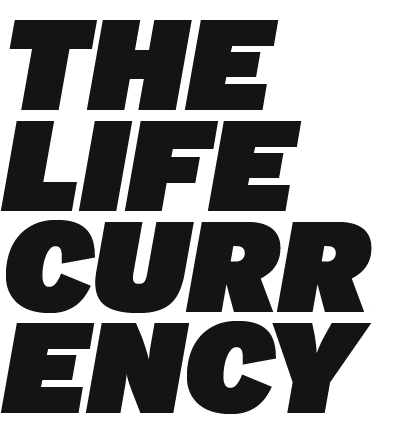THE NO B.S. WAY TO FIND A THERAPIST
QQ: Does anyone actually know how to go about finding a good therapist?
Search “how to find a therapist near me” and you’ll get about 500 million results. The reason you probably Googled that in the first place is because you were feeling stressed out, anxious, or overwhelmed, so sifting through 100s of results doesn’t feel very helpful when you’re already distressed. Complete overwhelm is the reason a lot of people abandon the idea of therapy before they even get started. We can thank our shitty healthcare system for that!
Policy failure aside, we want to make finding a therapist less of a struggle. So let’s break down how to find a therapist that meets your needs.
Find the right therapist for you
Finding the right therapist can be a lot like dating. You may have to break up with a few before you find the person that’s right for you. You want someone who understands you, but you also need to feel like they align with your own moral code. It's a delicate balance that requires some trial and error.
So how do you find that perfect match? Here are a few things you can do to make the process less painful.
Step 1: Identify your needs
Are you anxious, having relationship problems, unraveling old traumas, or struggling with self-esteem? Different therapists are equipped to handle all sorts of issues, and each individual practitioner often specializes in particular areas. The more you can understand your needs, the easier it will be to find someone with the ability to help you.
After spending some time identifying your primary therapy needs, you’ll want to get a better understanding of different therapeutic approaches such as cognitive-behavioral therapy (CBT), psychodynamic therapy, or mindfulness-based therapy. Try searching ‘the best therapy modalities for dealing with grief/divorce/anxiety, etc’.
Doing your own research is always important, but you don’t have to spend hours doing this. Just taking a few minutes to get a basic understanding of WTF you need and what is available will ensure you have a better experience than just choosing at random.
If specific identities (like race, religion, sexuality, or gender) are important to you, seek a therapist who shares, understands, and respects your perspective. Finding a therapist who is familiar with your cultural, religious, gender, and sexual identity will enhance the therapeutic process and create a space where you feel safe enough to explore self-expression.
Step 2: Get real on cost
Let’s be real, therapy is expensive. Most of us feel like we don’t have the luxury of being able to see a therapist regularly, let alone once a week. And if you're new to therapy, it might seem like a big commitment, and hard to see the benefit when you don't know if it will help you get better.
But here's the deal: If you're struggling with your mental health it's well worth it! You deserve to feel better about yourself, and sometimes that means getting some help from an objective third-party professional.
Therapy costs can vary, so it’s important to inquire about prices upfront. Get clear on whether your potential therapist accepts your insurance, offers a sliding fee scale, or provides any other financial arrangements. If you’re stretched financially, finding free group health meetups can be a good option.
Step 3: Ask around
Just like looking for an apartment or trying to find a new job, your friends and family members can be an amazing resource. Personal referrals can provide valuable insights and help you find a therapist who has a good reputation and track record. Or if there is a conflict of interest (say your mom’s therapist doesn’t feel like it's appropriate to take you, her child, on as a client… mmmmm, nope), they can refer you to someone they recommend.
Online platforms and directories can offer reviews and ratings to aid your search, but hearing about a positive experience from a person you trust is a great way to find someone for yourself.
If you’re not sure where to start, we've got a few recommendations for online directories to help you find the right fit.
Step 4: Consider logistics
Don’t skip this! Get real about the practical aspects of going to therapy such as location, availability, and affordability. Are you really gonna go every week if it takes an hour to get there each way? Factors like appointment time, travel distance, and whether your potential therapist accepts insurance or offers sliding-scale fees all matter, so don’t be afraid to ask questions upfront. Think about whether you prefer in-person sessions or would be better suited to online therapy options. You want your new therapist to fit into your schedule seamlessly, so your sessions don’t feel like an added burden.
Step 5: Assess the fit
Asking the right questions during your initial consultation is one of the best ways to find out if a therapist is right for you. But what if you have no idea what to ask? Or worse, what if you ask all the wrong questions?
Don't worry! We've got your back. We've done the research and compiled a list of 9 important questions you should ask your potential therapist during your initial consultation.
1. What kind of license do you have?
2. How long have you been providing therapy?
3. How much experience do you have in treating my issues and concerns?
4. How long is each session and how often will we meet?
5. What will therapy sessions be like? What can I expect?
6. What are the fees for therapy? Is insurance accepted? Is there a sliding fee scale?
7. Is therapy offered in person? Online?
8. How are cancellations or missed appointments handled?
9. Do you have after-hours availability for crises?
The initial consultation is the time to start getting to know your therapist. If you hate someone’s vibe, that’s a good enough reason to reach out to someone else.
Step 6: Don’t get discouraged
Lastly, remember that finding the right therapist may require some trial and error. Maybe you swiped right when you should’ve swiped left. We’ve all been there. You can give yourself permission to try out a few sessions with a therapist to determine if they’re a right fit. Assess how you feel during and after sessions, and if you feel like they can help you progress towards your goals.
If you made it this far, congrats you have self-awareness and have already done the work of taking a step toward improving your mental health. But remember that finding a therapist is a process, sometimes draining -- but in the end, it’s worth it when you find the right one. And just remember; you’re not alone -- 90% of Americans think they’re in a mental health crisis. That means they're experiencing similar struggles along with you.
We don’t know who needs to hear this, but it's okay to take care of yourself. It's okay to make sure you're mentally healthy, so you can feel more confident and have better relationships with friends and family members. And it's okay if finding the right therapist is a process—because when you find the right one, it'll be worth the effort.




